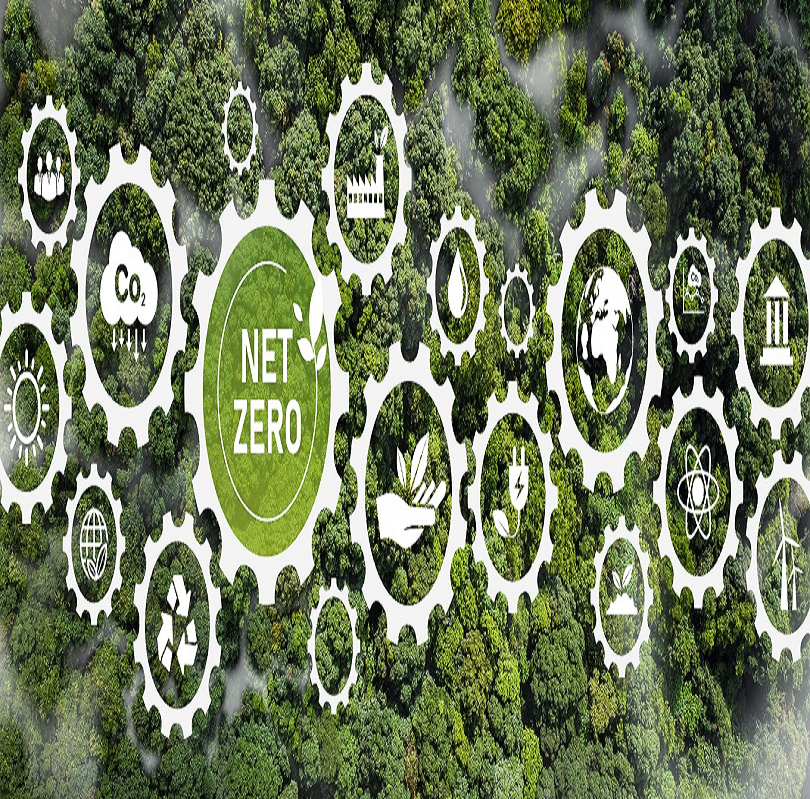
EGIF Global, as a non-governmental organization (NGO), is dedicated to advancing sustainability and environmental management through a committed approach to achieving net zero emissions. As climate change becomes an increasingly urgent issue, EGIF Global is actively integrating net zero principles into its operations and initiatives, aligning with global and national targets to address the climate crisis.
Understanding Net Zero
Net zero refers to balancing the amount of greenhouse gases emitted with the amount removed from the atmosphere, effectively reducing the overall concentration of these gases. Achieving net zero is essential to limit global warming to 1.5°C above pre-industrial levels, as stipulated in the Paris Agreement. The global commitment to net zero by 2050, and varying targets by individual countries, reflect a collective determination to mitigate climate change and promote a sustainable future.
Global and National Net Zero Targets
• Global Target (2050):The global aim is to achieve net zero emissions by 2050, significantly reducing greenhouse gas emissions to combat climate change and ensure sustainable development.
• India (2070): India aims for net zero by 2070, focusing on expanding renewable energy, sustainable agriculture, and urban resilience.
• China (2060): China is targeting net zero by 2060, with efforts directed towards transitioning to clean energy, enhancing energy efficiency, and fostering innovation.
• European Union (2050): The EU plans to achieve net zero by 2050 through the European Green Deal, circular economy practices, and carbon pricing.
• United States (2050): The U.S. is committed to net zero by 2050, emphasizing clean energy transition, infrastructure investments, and climate policy.
• Germany (2045): Germany aims for net zero by 2045 with a focus on energy transition, energy efficiency, and climate action laws.
• United Kingdom (2050): The UK’s Net Zero Act targets 2050, promoting green finance, clean growth, and technological advancements.
Understanding Net Zero
As an NGO, EGIF Global is dedicated to supporting and advancing the global effort to achieve net zero through a range of strategic initiatives and actions:
1. Carbon Footprint Reduction
• Assessment and Targets: EGIF Global conducts thorough assessments to measure its carbon footprint and sets specific targets for reducing emissions.
• Mitigation Strategies: The EGIF Global implements strategies to minimize emissions across its operations, including energy use, transportation, and waste management.
2. Renewable Energy Adoption
• Energy Transition: EGIF Global is transitioning towards renewable energy sources such as solar and wind to power its operations.
• Energy Efficiency: : The organization enhances energy efficiency through the adoption of energy-saving technologies and practices.
3. Sustainable Practices
• Green Infrastructure: EGIF Global is committed to developing and maintaining eco-friendly facilities that adhere to green building standards.
• Waste Reduction: Waste reduction and recycling programs are implemented to minimize environmental impact.
4. Carbon Offsetting
• Offset Investments: The EGIF Global Research in high-quality carbon offset projects that support reforestation, renewable energy, and community-based carbon reduction initiatives.
• Climate Projects: Engagement in projects that actively contribute to carbon sequestration and greenhouse gas reduction is prioritized.
5. Advocacy and Collaboration
• Policy Support: EGIF Global advocates for policies and regulations that promote climate action and support the transition to a low-carbon economy.
• Partnerships: The organization forms partnerships with governments, organizations, and communities to advance collective net zero goals and share best practices.
6. Innovation and Research
• Support Research: EGIF Global invests in research and development of new technologies and practices that contribute to achieving net zero.
• Pilot Programs: The organization implements pilot programs to test and demonstrate innovative solutions for carbon reduction and sustainability.
7. Education and Awareness
• Training Programs: EGIF Global provides training and capacity-building opportunities for staff, stakeholders, and communities to enhance understanding and implementation of net zero practices.
• Public Engagement: The organization raises awareness about net zero and climate action through events, workshops, and communications.
8. Monitoring and Reporting
• Progress Tracking: Continuous monitoring and measurement of progress towards net zero targets ensure transparency and accountability.
• Reporting: Regular updates on emissions reductions, offset investments, and overall progress towards net zero goals are provided.
By adopting these strategies, EGIF Global is playing a significant role as an NGO in the global effort to achieve net zero emissions. The organization’s actions are aligned with international climate targets and contribute to a sustainable and resilient future for communities and ecosystems worldwide. Through its commitment to reducing emissions, adopting renewable energy, and advocating for climate action, EGIF Global is making meaningful contributions to the fight against climate change.